[ad_1]
Nice speeches are likely to withstand the test of time, providing immense knowledge and talking on to our souls lengthy after their audio system have departed this Earth. There isn’t any one official set of parameters that outline an ideal speech. A few of the most well-known speeches from historical past are prolonged affairs wealthy with language and story, whereas others are transient and spare as they solely use phrases that drive house the message. Whether or not that is because of how effectively their writer made an argument, how effectively photographs and concepts are fleshed out in phrases, or how masterly the language itself consists, what history’s most famous speeches have in widespread is their simple impression.
Listed below are ten of historical past’s most well-known speeches – with excerpts – that can show these individuals knew their manner round language.
Martin Luther King, Jr.
1963 “I Have a Dream” speech
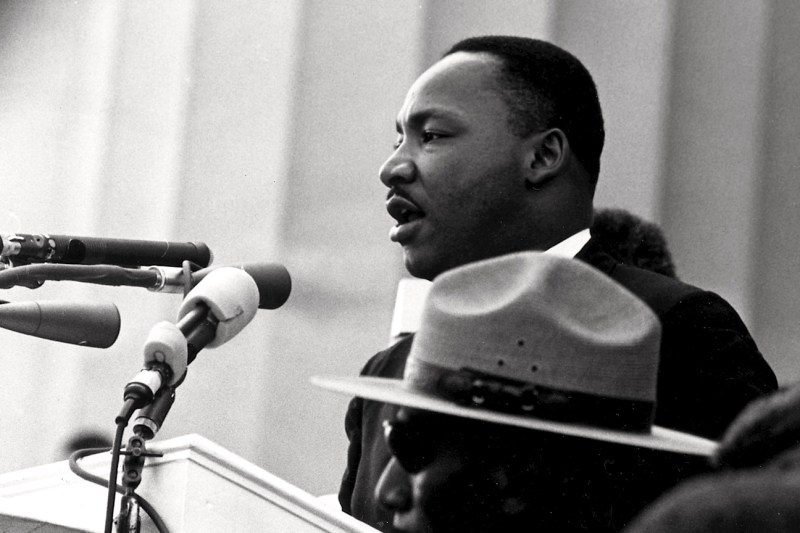
The Reverend Martin Luther King, Jr.‘s “I Have a Dream” speech, delivered on August 28, 1963, is among the most interesting items of oratory in human historical past. It blended masterful, wealthy language with the oratorical strategy of repetition and it was totally fearless.
King could be useless by an murderer’s bullet lower than 5 years after delivering his most well-known speech. His phrases had been no mere rhetoric; they had been an affirmation of the worth of human life and the expression of a trigger for which he would give his personal.
“I say to you as we speak, my pals, so though we face the difficulties of as we speak and tomorrow, I nonetheless have a dream. It’s a dream deeply rooted within the American dream. I’ve a dream that at some point this nation will stand up and stay out the true that means of its creed, ‘We maintain these truths to be self-evident, that every one males are created equal’ …
“I’ve a dream that my 4 little kids will at some point stay in a nation the place they won’t be judged by the colour of their pores and skin however by the content material of their character.”
Demosthenes
341 BCE Third Philippic
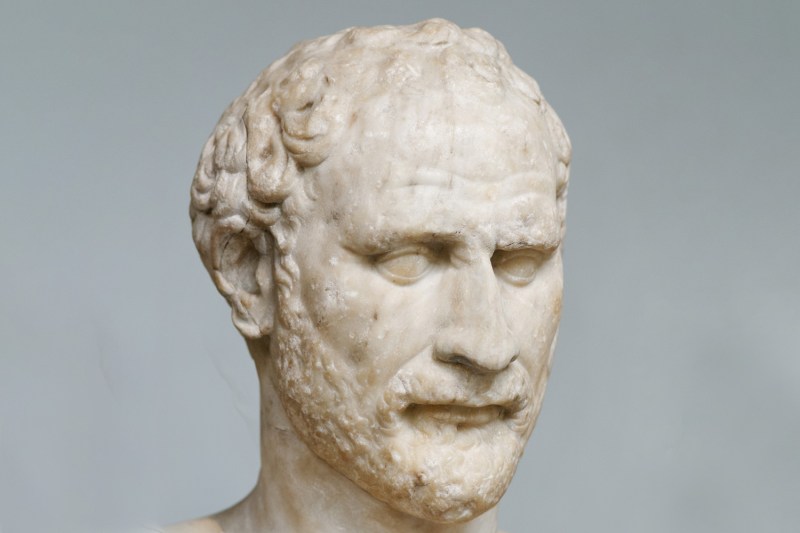
Although chances are you’ll not have heard of the Athenian orator Demosthenes, think about the truth that considered one of historical past’s most famed audio system of all time, Cicero, cited his historical forebear 300 years later. Demosthenes’ Third Philippic, so-called as a result of it was the third speech he gave dedicated to convincing his fellow Athenians to take up arms towards the encroaching forces of Phillip of Macedon, actually led males to warfare. On the finish of his speech, delivered in 341 BCE, the Athenian Meeting moved without delay towards their rival, spurred on by strains damning the previous inaction of his fellow residents:
“You might be in your current plight as a result of you don’t do any a part of your obligation, small or nice; for after all, if you happen to had been doing all that it is best to do, and had been nonetheless on this evil case, you could possibly not even hope for any enchancment. As it’s, Philip has conquered your indolence and your indifference; however he has not conquered Athens. You haven’t been vanquished, you’ve by no means even stirred.
Queen Elizabeth I
1588 “Spanish Armada” speech to the troops at Tilbury

In 1588, English monarch Queen Elizabeth I gave one of many manliest speeches in historical past regardless of, at one level, placing down her personal physique for being feminine. Because the “mighty” Spanish Armada, a flotilla of some 130 ships, sailed towards Britain with plans of invasion, the queen delivered a rousing tackle at Tilbury, Essex, England. Because it turned out, a storm and a few navigational errors took care of the Spanish warships for essentially the most half. Nonetheless, it was a daring speech that helped bolster a nation. This speech additionally made Queen Elizabeth well-known for the armor she wore in entrance of her troops.
“I’m come amongst you, as you see, at the moment, not for my recreation and disport, however being resolved, within the midst and warmth of the battle, to stay and die amongst you all; to put down for my God, and for my kingdom, and my individuals, my honour and my blood, even within the mud. I do know I’ve the physique however of a weak and feeble lady; however I’ve the guts and abdomen of a king, and of a king of England too, and assume foul scorn that Parma or Spain, or any prince of Europe, ought to dare to invade the borders of my realm: To which slightly than any dishonour shall develop by me, I actually will take up arms, I actually shall be your common, decide, and rewarder of each considered one of your virtues within the area.”
George Washington
1783 Resignation Speech
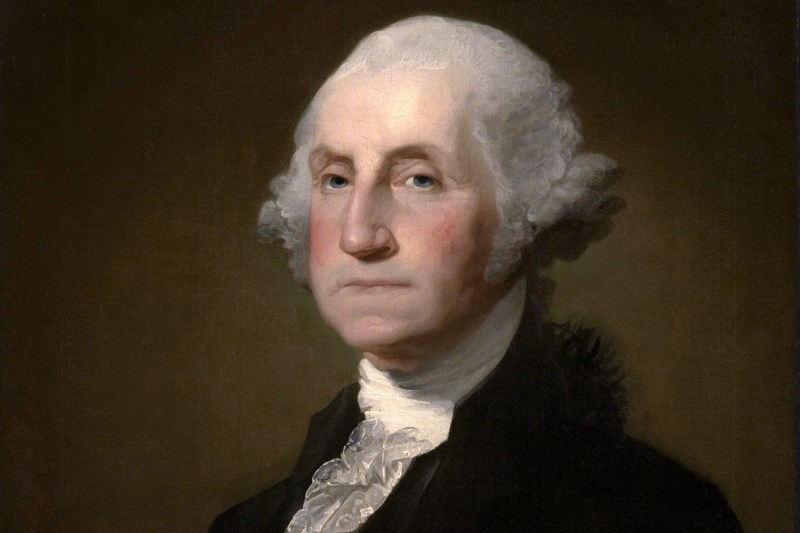
To know the true energy of George Washington‘s resignation because the commander-in-chief of the U.S. Navy (identified then as Continental Military) on December 23, 1783, you need to transcend the phrases themselves and respect the context. Common Washington was by no means obliged to resign his fee, however did so willingly and even gladly, simply as he would later refuse a 3rd time period as president of the nation, establishing a precedent honored into the Nineteen Forties and thereafter enshrined in legislation. Regardless of being essentially the most highly effective man within the fledgling army after which changing into essentially the most highly effective man in the US, the staid and humble Washington was by no means hungry for energy for himself; he simply occurred to be the perfect man for the job(s).
Even in his final tackle as chief of the nation’s armed forces, Washington made all of it about America, and never about himself:
“Completely satisfied within the affirmation of our Independence and Sovereignty, and happy with the chance afforded the US of changing into a decent Nation, I resign with satisfaction the Appointment I accepted with diffidence. A diffidence in my talents to perform so arduous a job, which nevertheless was outmoded by a confidence within the rectitude of our Trigger, the help of the Supreme Energy of the Union, and the patronage of Heaven.”
Abraham Lincoln
1863 Gettysburg Tackle

There’s a motive many individuals think about the Gettysburg Tackle to be the perfect speech in American historical past: It in all probability is. In simply 275 phrases on November 19, 1863, close to Gettysburg, Pennsylvania, President Abraham Lincoln managed to precise the next sentiments:
- America is each a spot and an idea, each of that are value preventing.
- Combating is horrible, however shedding is worse.
- We now have no intention of shedding.
Satirically, one line in Lincoln’s speech proved to be laughably inaccurate. Halfway via the speech, he humbly stated: “The world will little word, nor lengthy keep in mind what we are saying right here.” In actual fact, the world continues to recollect his transient but very stirring tackle.
“In a bigger sense, we can’t dedicate, we can’t consecrate — we can’t hallow — this floor. The courageous males, dwelling and useless, who struggled right here have consecrated it far above our poor energy so as to add or detract …
“It’s for us the dwelling, slightly, to be devoted right here to the unfinished work which they who fought right here have up to now so nobly superior. It’s slightly for us to be right here devoted to the good job remaining earlier than us; that from these honored useless we take elevated devotion to that trigger for which they right here gave the final full measure of devotion; that we right here extremely resolve that these useless shall not have died in useless; that this nation, underneath God, shall have a brand new start of freedom, and that authorities of the individuals, by the individuals, for the individuals, shall not perish from the Earth.”
Chief Joseph
1877 Give up Speech
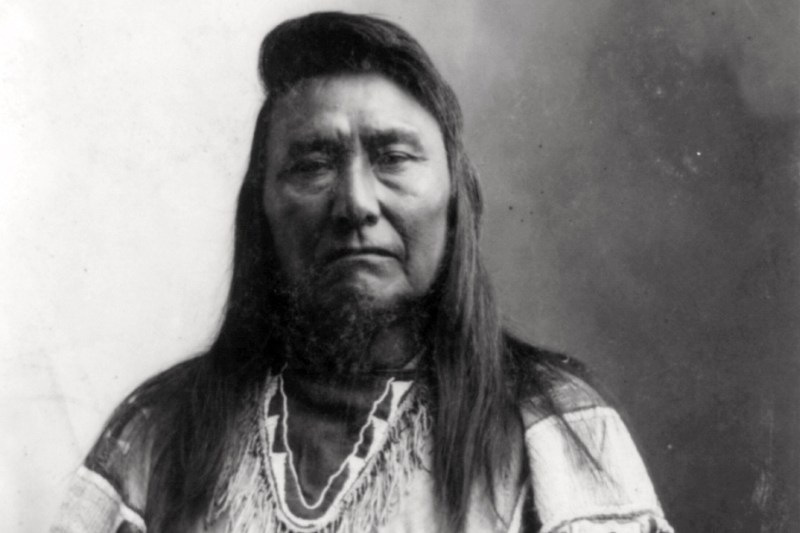
On October 5, 1877, Nez Perce tribe leader Chief Joseph delivered a brief, impromptu, and wrenching speech that many see because the lamentation of the tip of an period for Native Individuals and the lands that had been stolen from them. Overtaken by the US Military throughout a determined multi-week retreat towards Canada, Chief Joseph surrendered to Common Howard with this bleak, shifting message:
“I’m uninterested in preventing. Our chiefs are killed. Trying Glass is useless. Toohoolhoolzote is useless. The outdated males are all useless. It’s the younger males who say, ‘sure’ or ‘no.’ He who led the younger males [Olikut] is useless. It’s chilly, and we now have no blankets. The little kids are freezing to loss of life. My individuals, a few of them, have run away to the hills, and haven’t any blankets, no meals. Nobody is aware of the place they’re — maybe freezing to loss of life. I need to have time to search for my kids and see what number of of them I can discover. Possibly I shall discover them among the many useless. Hear me, my chiefs! I’m drained. My coronary heart is sick and unhappy. From the place the solar now stands I’ll battle no extra eternally.”
Lou Gehrig
1939 “Luckiest Man” speech

Nobody needs a virulent disease named after them, however that’s what occurred to baseball legend Lou Gehrig, who died at 37 after a short battle with ALS. Following a surprising profession by which the Corridor of Fame participant earned lots of baseball’s high honors and awards, Gehrig delivered some of the touching speeches of the twentieth century, a speech by which he introduced consolation to these mourning his sickness at the same time as his well being fell aside.
In essence, Gehrig instructed individuals to not fear about one dying man, however as a substitute to have fun all life needed to provide as he listed all of the fantastic issues that occurred in his personal life. In so doing, he introduced solace to many and created a mannequin of selflessness. Gehrig delivered this brief speech on Independence Day of 1939 at Yankee Stadium.
“Followers, for the previous two weeks you’ve been studying a couple of dangerous break. But as we speak I think about myself the luckiest man on the face of the earth. I’ve been in ballparks for 17 years and have by no means obtained something however kindness and encouragement from you followers …
“So I shut in saying that I’ll have had a troublesome break, however I’ve an terrible lot to stay for.”
Winston Churchill
1940 “We Shall Struggle on the Seashores” Speech
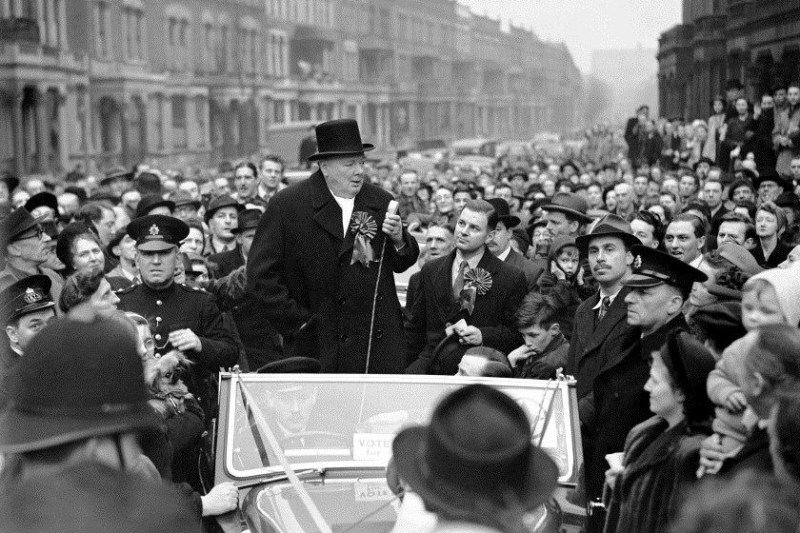
Winston Churchill delivered many superlative speeches in his day, together with the 1946 tackle that created the time period “Iron Curtain” to explain the boundary of Britain’s latest ally, the Soviet Union, and a 1940 speech praising the heroism of the British Royal Air Power by which he uttered the road: “By no means was a lot owed by so many to so few.”
However it was his daring and bolstering speech delivered on June 4, 1940, to the British Parliament’s Home of Commons — generally known as “We Shall Struggle on the Seashores” — that almost all exemplifies the famed chief. These had been extra than simply phrases — these had been a promise to his nation that they had been all within the battle wholeheartedly collectively and it was a heads-up to the Axis Powers that attacking the Brits had been a nasty concept.
“We will go on to the tip, we will battle in France, we will battle on the seas and oceans, we will battle with rising confidence and rising energy within the air, we will defend our Island, no matter the associated fee could also be, we will battle on the seashores, we will battle on the touchdown grounds, we will battle within the fields and within the streets, we will battle within the hills; we will by no means give up.”
John F. Kennedy
1961 Inaugural Tackle
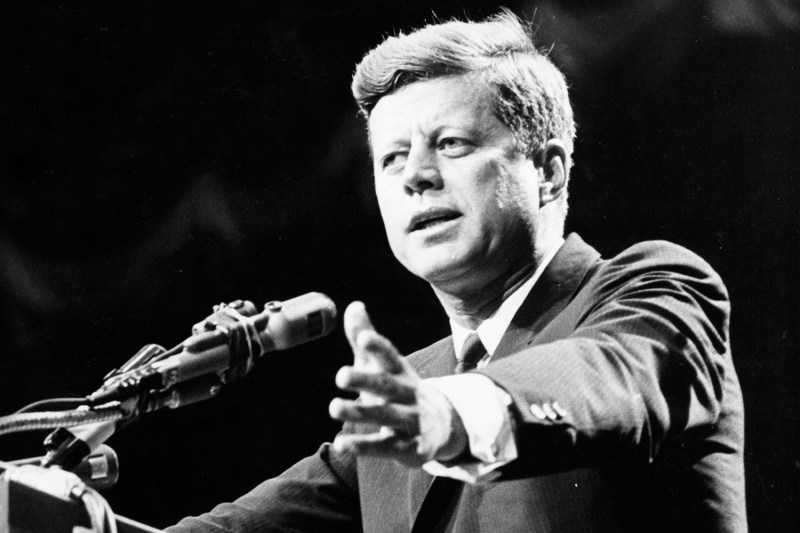
A lot of President John F. Kennedy‘s pithy 1,366-word inaugural tackle, delivered on January 20, 1961, was well-written and significant, however as usually occurs, his speech has stood the check of time thanks to at least one excellent phrase. Amidst an tackle full of each hope and dire warnings (“Man holds in his palms the ability to abolish all types of human poverty and all types of human life,” the latter being a transparent reference to atomic weapons), he issued a direct enchantment to Individuals in all places to face up for his or her nation. the road:
“And so, my fellow Individuals: Ask not what your nation can do for you — ask what you are able to do on your nation. My fellow residents of the world: Ask not what America will do for you, however what collectively we are able to do for the liberty of man.”
Barack Obama
2004 Democratic Nationwide Conference keynote tackle
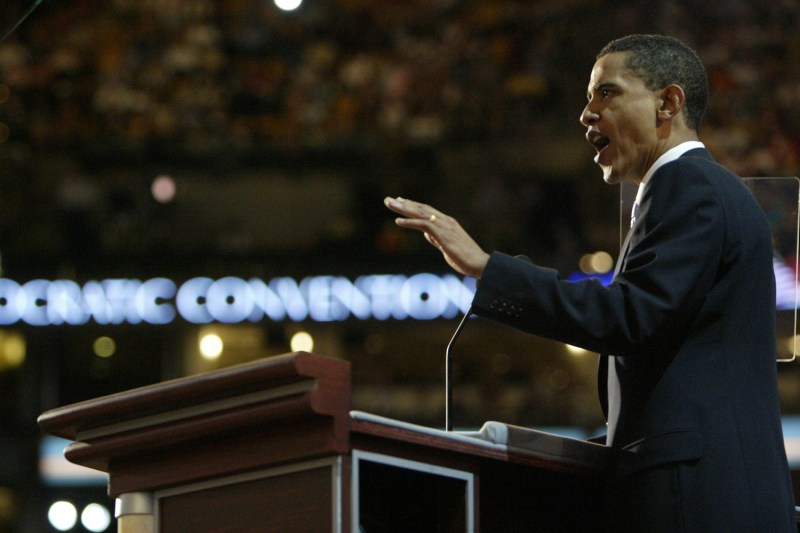
When our future president – then a candidate for the U.S. Senate in Illinois – Barack Obama delivered a 17-minute speech on the night of July 27, 2004, on the Democratic Nationwide Conference endorsing presidential candidate John Kerry, the non-public trajectory of 1 man and the historical past of a complete nation shifted dramatically. Already an up-and-coming politician gaining traction in his house state of Illinois, Obama’s keynote address that night time reworked him right into a nationwide determine and paved the way in which for his journey to changing into the primary POTUS of colour. What was it in regards to the speech that so moved the nation?
Partly, it was merely the wonderful writing, most of which Obama dealt with himself. Maybe extra so, it was the message of the speech, which spoke to the “abiding religion within the prospects of this nation.” In brief, Obama reminded us of who we had been speculated to be as residents of this nation. And for a flickering second, many people heard him.
“There’s not a liberal America and a conservative America; there’s the US of America. There’s not a Black America and white America and Latino America and Asian America; there’s the US of America …
“We’re one individuals, all of us pledging allegiance to the celebrities and stripes, all of us defending the US of America. In the long run, that’s what this election is about. Will we take part in a politics of cynicism, or will we take part in a politics of hope?”
We hope you’re feeling extra impressed and decided to make your individual historical past after perusing this checklist. For extra historic inspiration, take a look at ten of our favorite Black History films, these 18 fantastic history books to read, and 7 superb books documenting LGBTQ+ history. Nonetheless you propose to vary your current and future, we want you nothing however the perfect of luck.
Editors’ Suggestions
[ad_2]
Source_link





